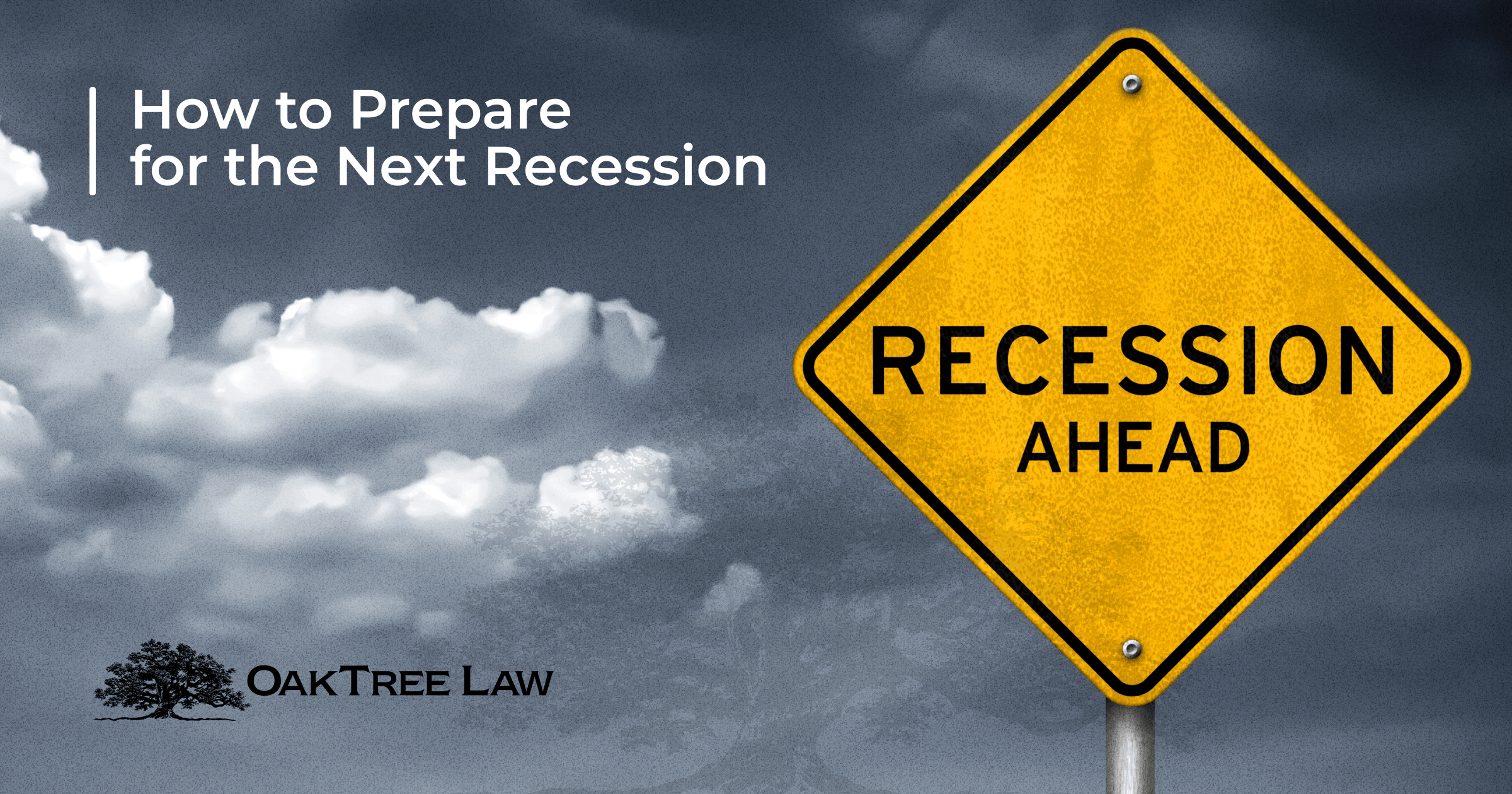A normal occurrence in the economic cycle, a recession is a significant and prolonged downturn in economic activity. It may last from a few months to years. According to a 2022 survey from Empower and Personal Capital, 74% of U.S. consumers expressed concern about the economy going into recession. Economists and organizations have been warning of a possible recession for some time. Does this mean you’re sure to experience financial hardship? Not necessarily; we’ll explain how to prepare for the next recession so you can weather the storm.
During a recession, a nation’s gross domestic product (GDP) declines, inflation may increase, and unemployment levels may rise. Consumers may spend less on goods and services than they normally would. It may be hard to find a new job while stocks, retirement funds, and savings accounts can lose value. Obtaining new credit accounts may be difficult as lenders raise lending requirements to deal with financial uncertainty.
That may sound like a lot to deal with. But you can soften the blow by preparing for a recession with the following steps:
Assess Your Financial Situation
Look at how much cash you have available, add up basic monthly living expenses, and evaluate how much debt you have. An emergency fund covering three to six months of living expenses can keep you secure if a job loss or other financial hurdle arises. If you don’t have one, set a goal of saving up enough cash, which requires understanding what and how you are spending it.
Analyze Your Budget
Compare regular expenses to take-home pay. Add up what you’re spending on rent/mortgage payments, utilities, groceries, insurance premiums, home/auto maintenance, childcare, medical bills, pharmaceuticals, etc. Cash from side hustles, child support, and other sources should be factored into your budget. Then look at non-essential spending. There may be areas you can reduce spendings in a recession, such as clothing, entertainment, or cable TV.
Pay Down Your Debts
If you owe money on credit cards, student loans, or utilities, focus on paying off outstanding debts, or at least paying them down somewhat. Rising interest rates may make it harder to meet your goals, so it’s best to get started now. Also, any loss of income may mean having to forgo paying a bill or two. Paying off debt and prioritizing the bills you pay can avoid that.
If Experiencing Hardship, Reach Out to Creditors
Making at least the minimum payment on credit cards will keep your accounts current. If your situation makes it hard to do this, contact the credit card company. They may be open to working out a payment plan if you have a good history (although your account may be frozen so you can’t make additional purchases). Other options may include forbearance, making interest-only payments, or lowering your interest rate. If you’re paying student loan debt and experience a reduction in income, submit a hardship application; payments may be suspended for a few months, hopefully when your income has recovered.
Evaluate Your Career Plan
How vulnerable is your employer/industry during a recession? If you’re at a higher risk of a layoff, create a backup plan, strengthen your professional connections, and network outside your current employer. Update your resume and look for areas where you could improve, such as continuing education, a new degree or certification, or additional training. At the very least, you want to make sure you have a steady income, if possible, so picking up a side gig or freelancing can be helpful.
Stay Focused
Don’t panic. If a recession and market volatility are your primary financial barriers, realize that recessions don’t last forever. The market tends to grow over time. Avoid making important financial or investment decisions when you’re emotional. Consider your long-term goals and needs and adapt to market conditions along the way. This is how to prepare for the next recession and come through stronger on the other side.
OakTree Law Can Help Navigate Financial Difficulties
In the most serious financial circumstances, you might want to consider Chapter 7 bankruptcy, which can help get you back on track when overwhelmed with debt. Our bankruptcy attorneys can make sure you benefit and will weigh various options. Whether you’re facing bankruptcy, foreclosure, or wage garnishment, our team will find the right solution for you. To get started, request your free evaluation online or give us a call at 888-348-2609.








